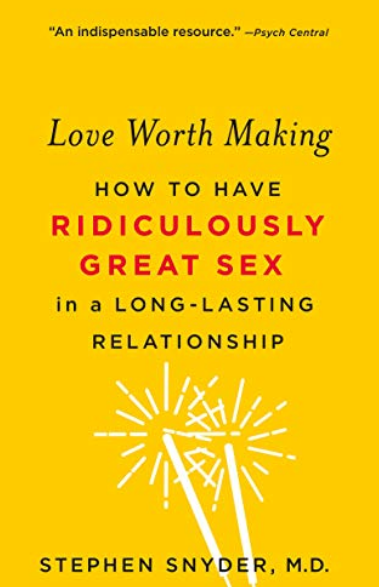Love in the Lockdown
Relationship problems during the pandemic are taking a toll on sex lives, therapist says.
Susan Levy has been counseling couples and individuals since 1982, but what she is hearing from some of her clients during the coronavirus pandemic surprises even this experienced therapist.
“I feel like a referee, at times. The abuse, the negative talk, the name calling. It’s awful,” she says.
Months in a partial lockdown, as well as anxiety over career and financial issues, the stress in some cases of constantly caring for small children, and the fear of illness, are taking their toll on psyche and relationships. Not to mention sex lives.
Earlier this month, the Food and Drug Administration reported that increased demand for anxiety and depression drugs had caused shortages of the popular antidepressant Zoloft and its generic equivalent.
A survey by researchers at Johns Hopkins University showed a sixfold increase in psychological distress this year over a similar survey just two years ago. Levy believes the pandemic has made an important difference in how people relate to one another.
“I think there’s such a level of grief in in the world, such a level of rage. It’s like when you’re filling up a trash can and all it needs is one more piece of trash and then the whole thing overflows. I find that’s what’s happening with people.
Something that they wouldn’t ordinarily get upset about really throws them completely.”
The Buckhead counselor finds this to be particularly the case among couples that are already having difficulties with their sexual relationship. What she says is an increase in the “level of meanness that comes up” between two people during the coronavirus lockdown has made bad relationships worse.

“The male partner of one couple I am working with complained that he and his wife hadn’t had sex in three months. She said, ‘Well, we don’t talk very much. How do you expect to have sex when we’re barely talking to one another?’”
Dr. Stephen Snyder, whose New York medical practice concentrates on sex and relationships, believes “we’re wired to have sex when we’re feeling good about the world. But that’s not happening now. People just aren’t feeling sexy.”
“Sex really does connect to people’s strongest and deepest feelings about themselves and the world. People aren’t feeling a sense of confidence in the future. Sex is all about hope.”
Dr. Snyder, who has written extensively about sex therapy, teaches psychiatry at the School of Medicine at Mount Sinai in New York City. He’s the author of the critically acclaimed book, “Love Worth Making: How To have Ridiculously Great Sex in a Long-Lasting Relationship,” which was published in 2018. The book was inspired, in part, by his return to a more observant life when he married in his mid-30s.
Although he was raised in a conventional Reform family, he intensified his commitment to Judaism when he married the daughter of a rabbi from New York’s chasidic community.
Just as Judaism teaches to bring a sense of holiness to everyday life, so Dr. Snyder believes that if we are seeking to improve the nature of our sexual relationships, we should “sanctify the erotic moment by paying attention to it in all its variety.”
His medical practice, as he described it in a recent interview, has as much to do with his spiritual practice as an observant Jew.
“I would say a Jewish attitude towards sex is that you’re looking for inspiration and opening yourself up to inspiration wherever it may happen. And rather than looking for extraordinary experiences, you’re sanctifying ordinary experiences.”

Levy agrees. She believes we learn best when we pay attention to carefully observing ourselves and the other person with whom we have a relationship.
“I ask people to try to stay really curious about the other person, because although you can think that you know them, no matter how many years you’ve been together, people continually unfold.”
Being more mindful of our sexual life is also an important theme for Snyder, who believes that while it may not be easy, being alert to your own sexual feelings creates important dividends. It will pay off, as he writes in his book, with a greater connection to those with whom you share an intimate moment.
“Pay attention to this moment. It won’t come again. Moments like these have their mission, which is to inspire you to love. Love each other deeply and well. Be patient and kind to each other. In the place where you came together just now, you were as honest as small children, and just as vulnerable. The small children of your inner hearts will show you the way to heaven, if you let them. Let them run all the way up to heaven together, holding hands.”





comments